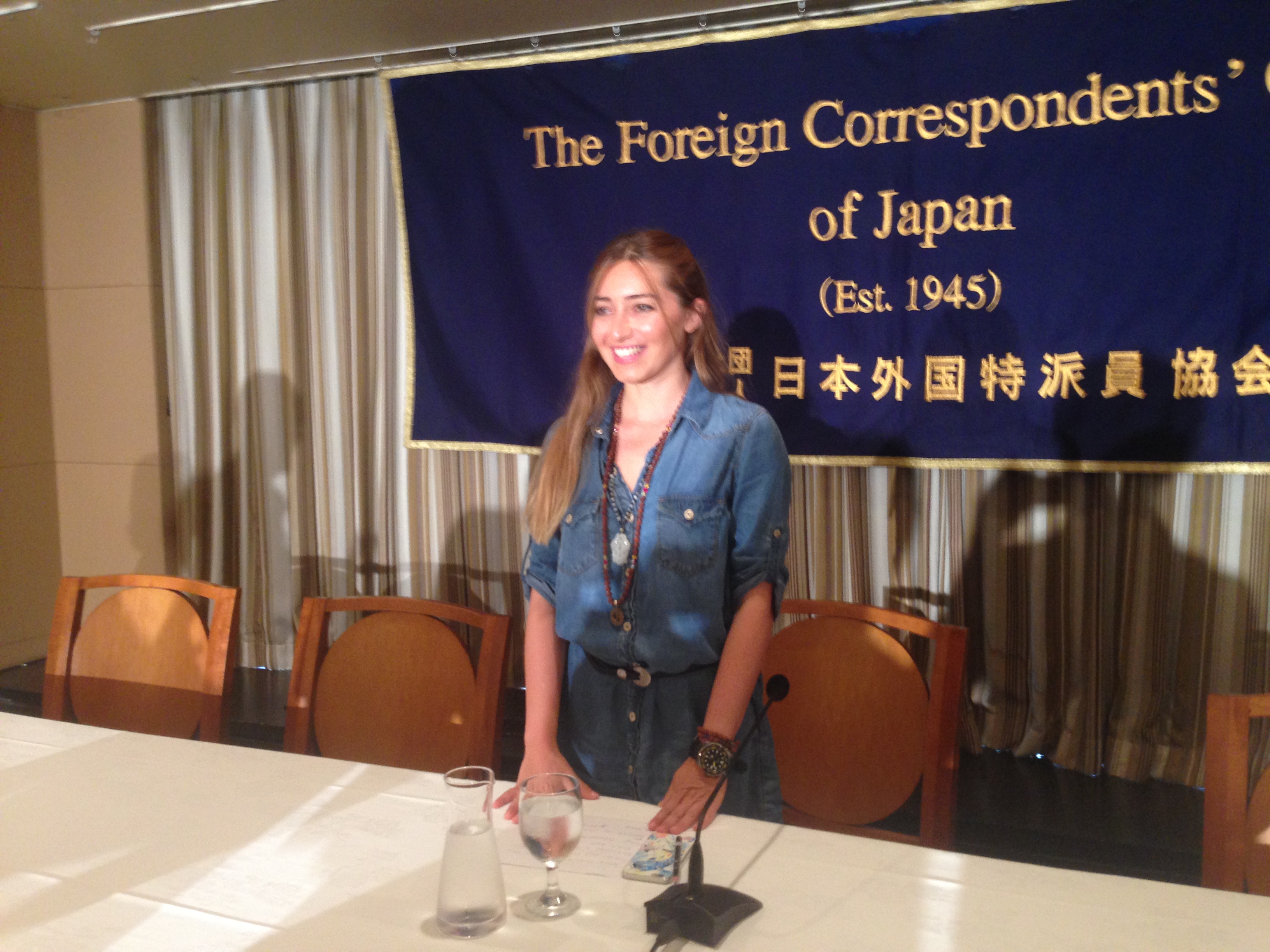From countless tsunami-related disasters to lopsided naval losses, the Ocean has been the setting for many of Japan’s darkest moments. It’s even been unkind to those who visit it with the best intentions.
Recently, Turkish world-record holding diver Sahika Ercumen has been visiting Japan to commemorate the 125th anniversary of the sinking of the Turkish frigate Ertugrul, which crashed off the coast of Kushimoto in 1890. After Ercumen and her team sailed out to the original crash site, they then dove to the bottom to examine the remains and leave a plaque stating Japan and Turkey’s joint sympathy for the 533 sailors who died during the crash.
Treating the event as a display of Japanese-Turkish camaraderie, many living in Kushimoto lined the streets waving Turkish flags to welcome Ercumen. Even princess Akiko of Mikasa attended the event.
After struggling to dive in the crash area’s rough conditions, Ercumen noted that braving the waves gave her a better sense of what the being on the sinking Ertugrul must have been like.
“We looked to the sea and we started understanding what they went through 125 years ago because the waves were so strong and I could barely fight against the current,” Ercumen said.
It certainly is saying something coming from Ercumen, who holds multiple world records in free diving amongst both men and women. In 2011, she made it into The Guiness Book of World Records for swimming underneath a sheet of ice for 110 meters while holding her breath.
At her presentation at the FCCJ on Tuesday, Ercumen lauded the Japanese people’s friendliness and the contributions Japan’s mostly female Ama divers have made to free diving.
“I’m impressed about traditional Japanese Ama divers, because that was really the start of free diving,” Ercumen said. “Japanese women divers have been diving for pearls and seaweed for 2,000 years in your tradition, so we would love to make some documentaries with them.”
Along with her love of diving and desire to commemorate the Turkish lives lost here, Ercumen is also visiting Japan to express her hope of protecting the ocean and its sea life. In Japan, a country where documentaries such as The Cove have been made to show how extreme some of its fishing traditions can be, one would think she would come bearing a message of forewarning about the dangers of overfishing, right?
“Well this is an eco system,” Ercumen said. “I eat fish, I eat my friends. But, I mean, they eat plankton, so it’s part of the system … I’m most focused on protecting their playground. If we pollute the water, that’s a bigger issue to me than just eating one fish.”
Not only a world-class diver, Ercumen graduated as a certified Nutritionist from Baskent University and believes that the health benefits of eating fish must be considered when protecting the environment.
“I’m a nuitrition specialist, so maybe if I were just a free diver I would say something else,” Ercumen said. “There’s a protein found in fish called Omega 3, and people really need these things.”
Ercumen is visiting Japan for her first time, and says that after diving in Okinawa she would love to explore more of it, especially since Turkey lacks the diverse sea life of Japan.
“I’d love to dive with whales and sea mammals. We don’t have them in Turkey too much, so we never met with them. But in Japan my friends told me when they are diving they can hear the sounds of the whales.”
This more peaceful side of the ocean is something Japanese people are much less accustomed to. If people like Ercumen can promote competitive free diving amongst Japanese youth, maybe Japan can one day shake its image of being an insensitive slaughterer of sea mammals.

I enjoyed reading this article and like the way you depict Sahika Ercumen’s political dance around Japan’s deplorable unconcern for the earths’s sea life… I eat fish don’t you.